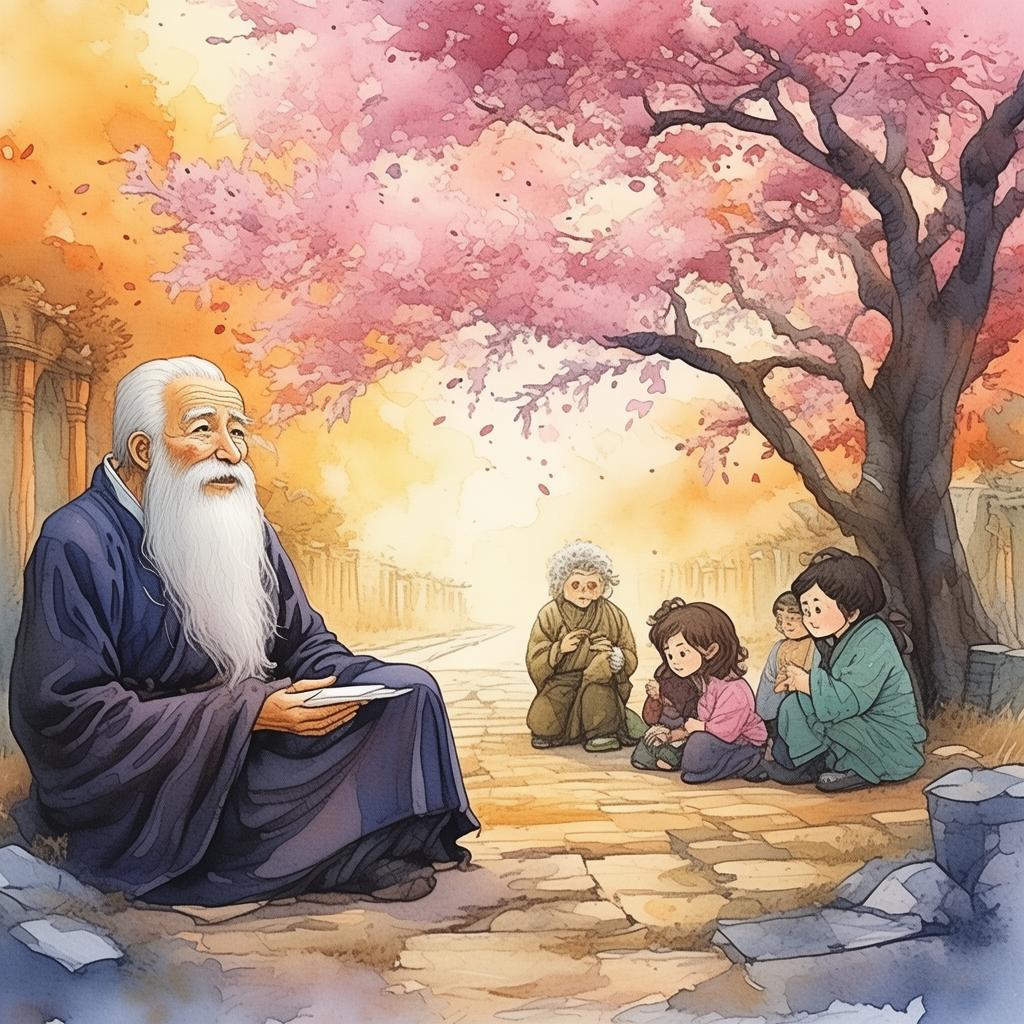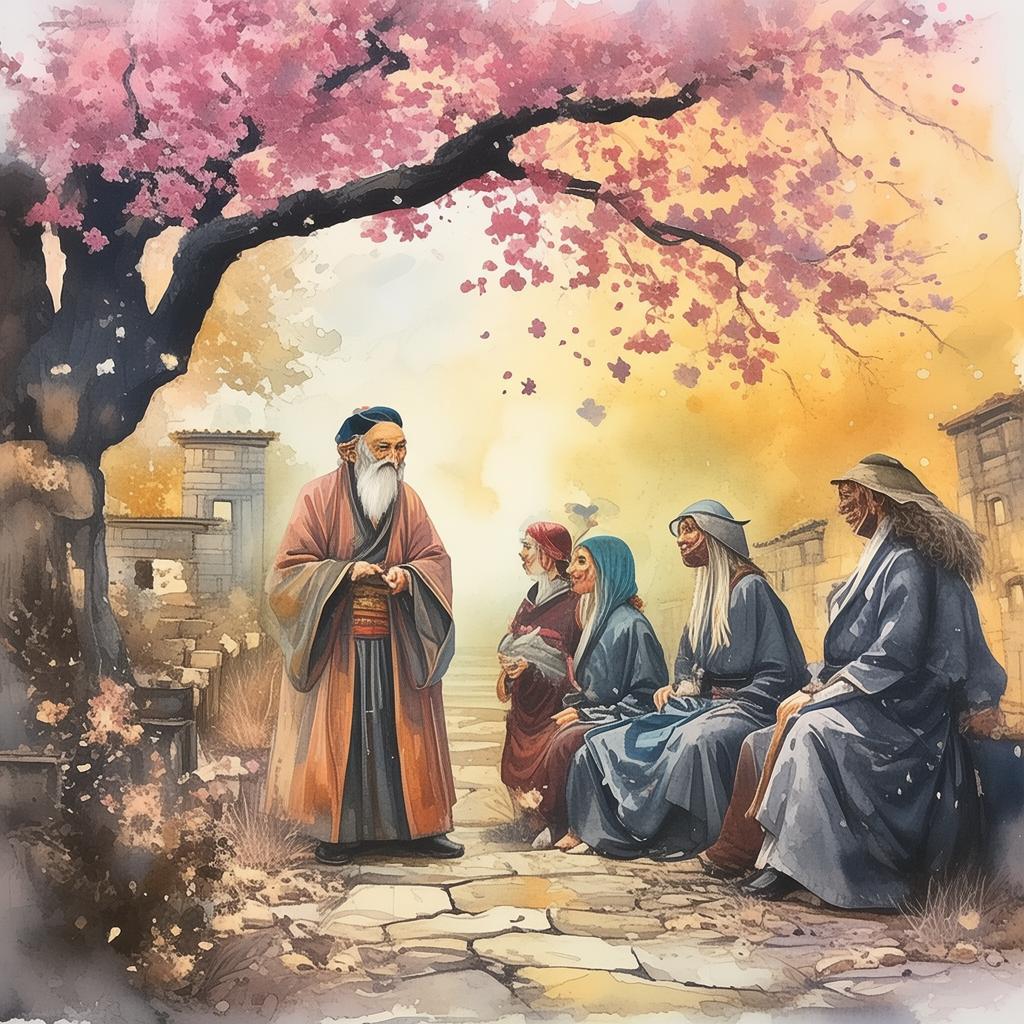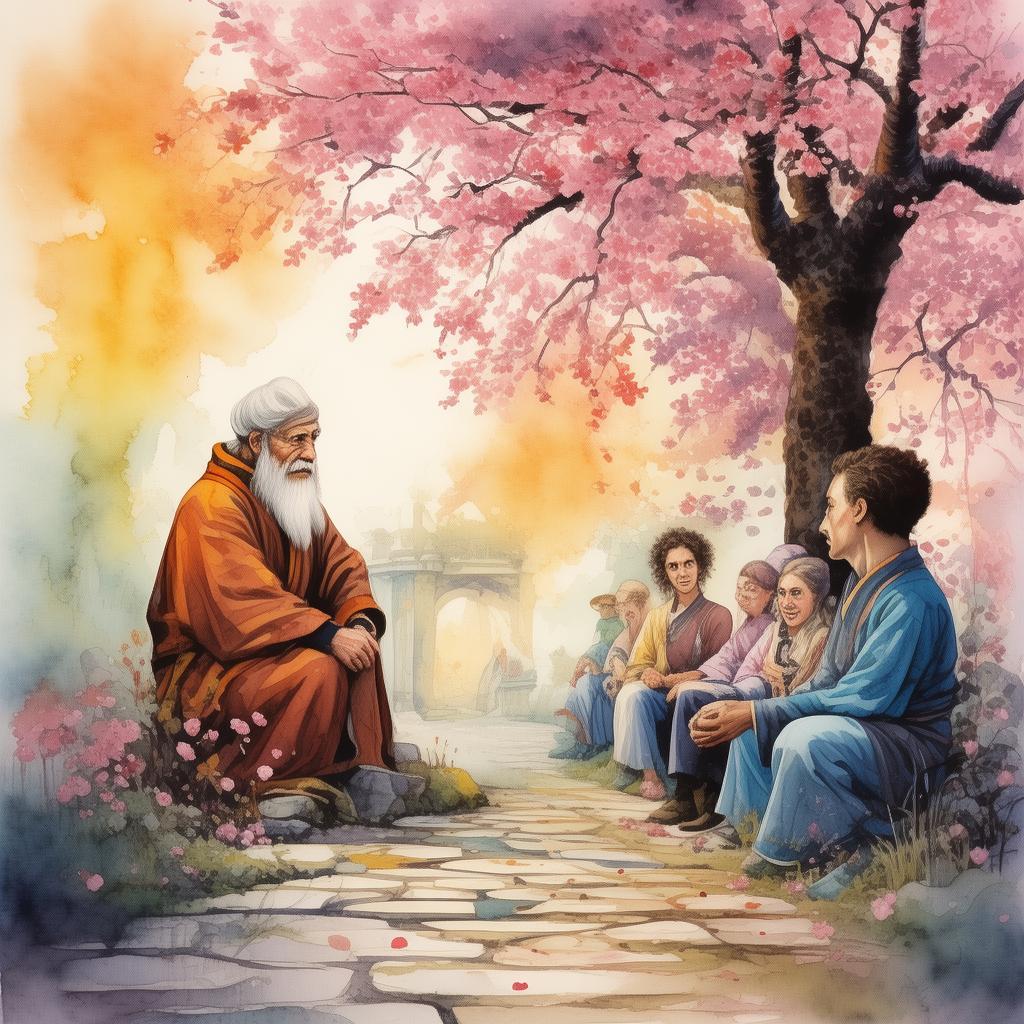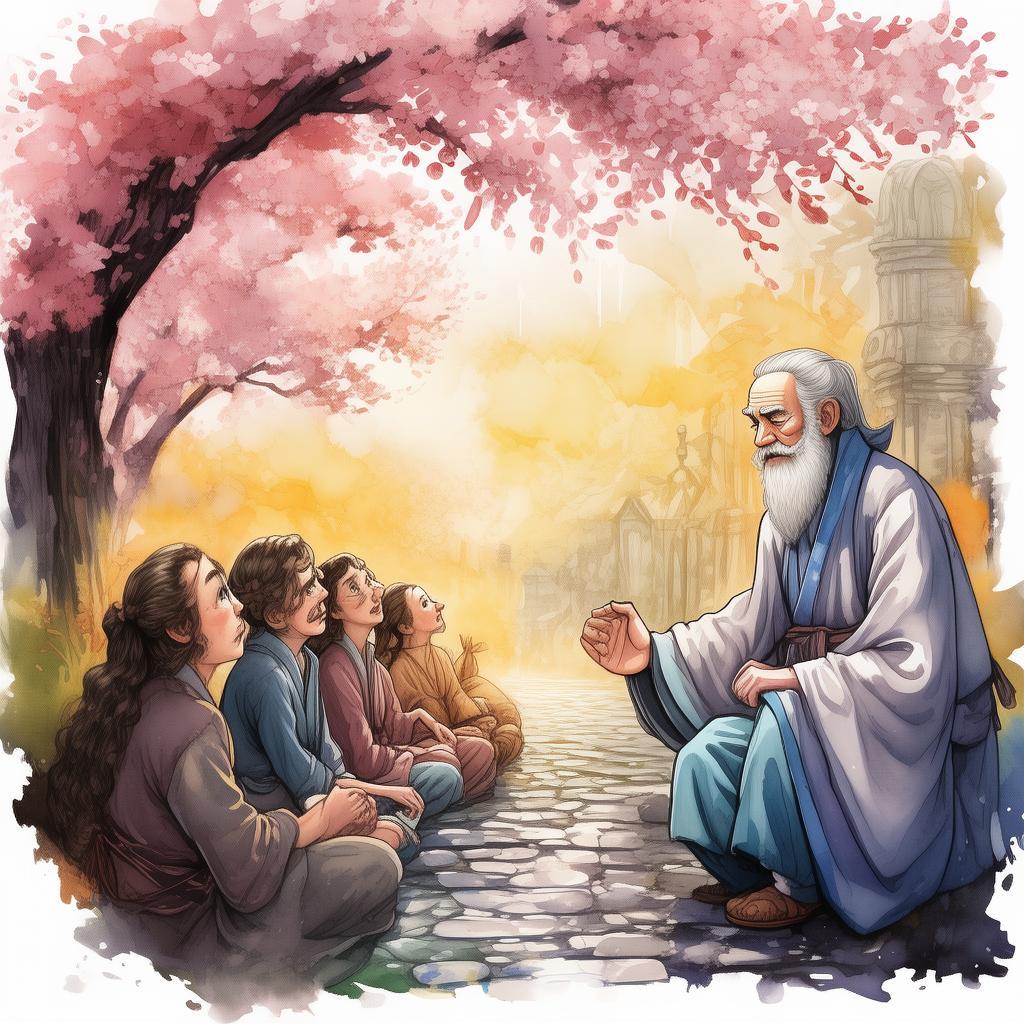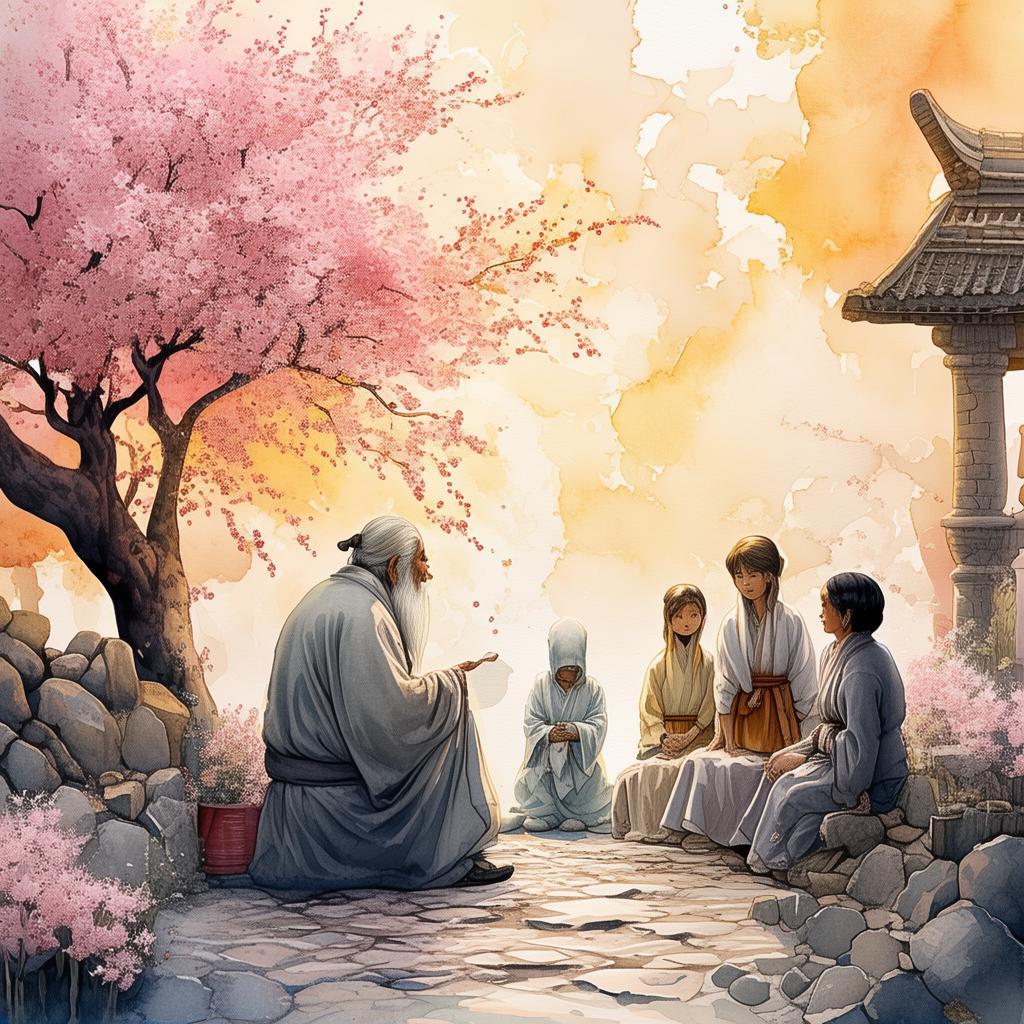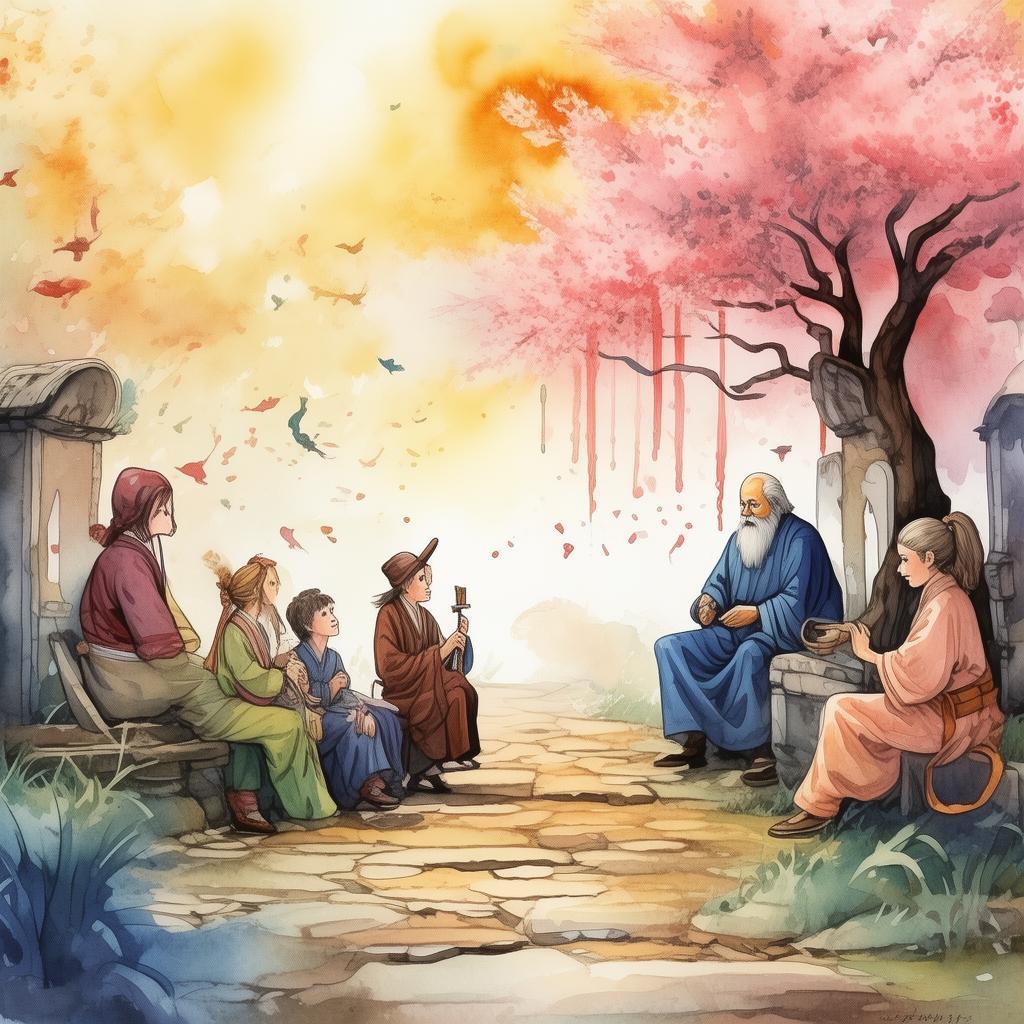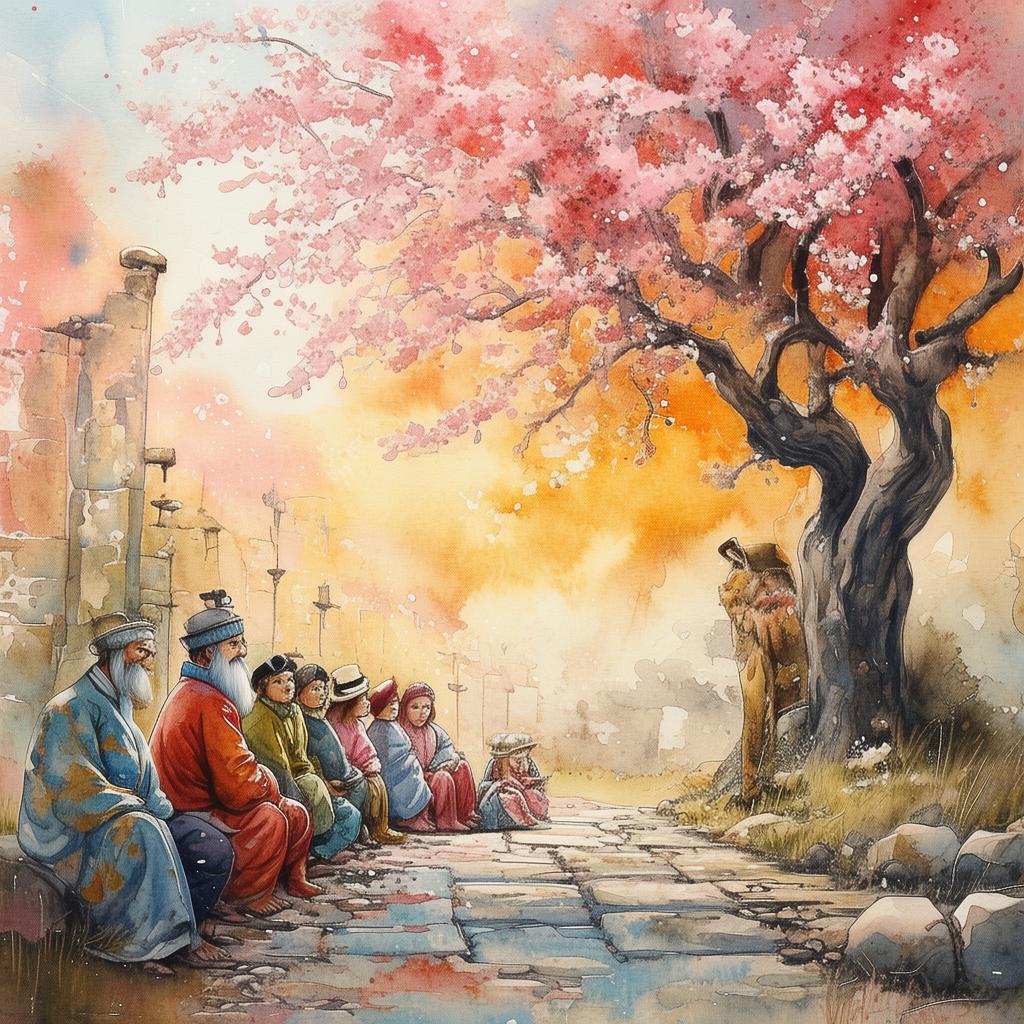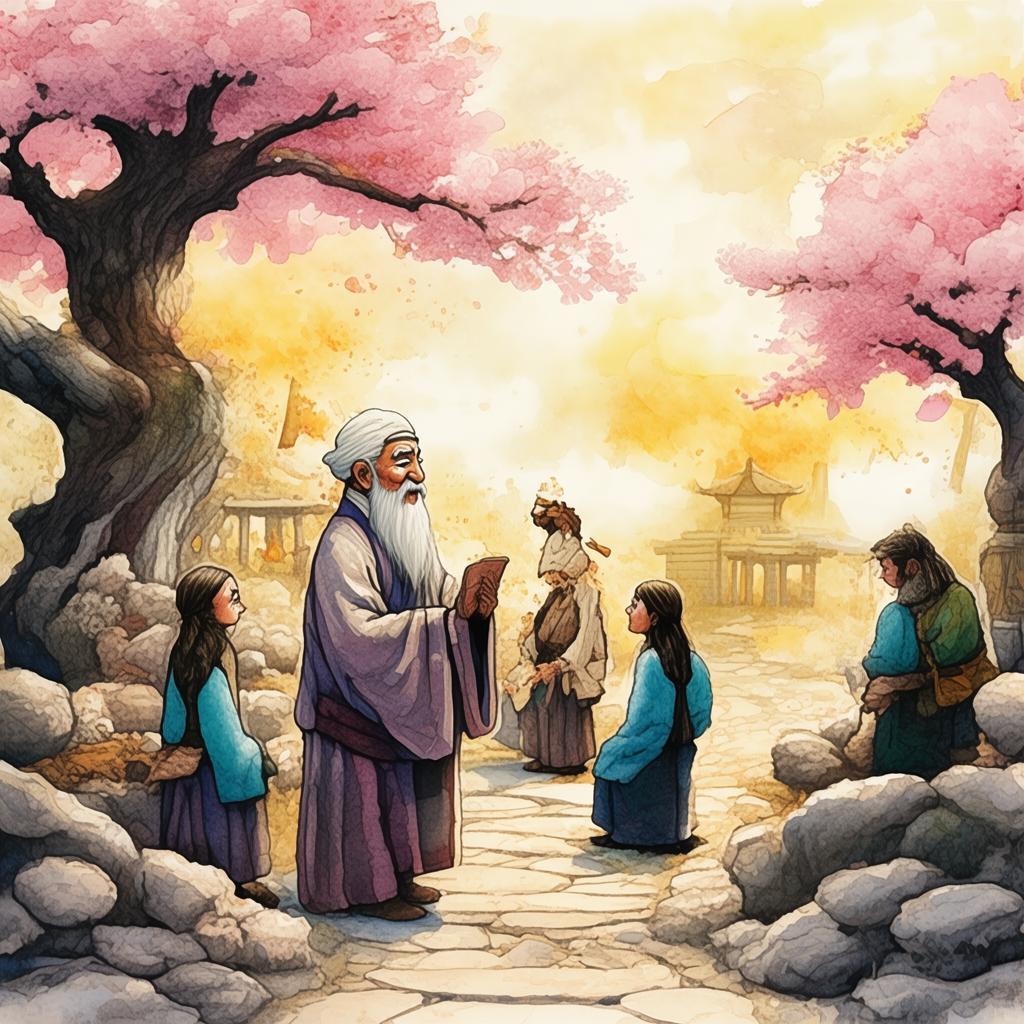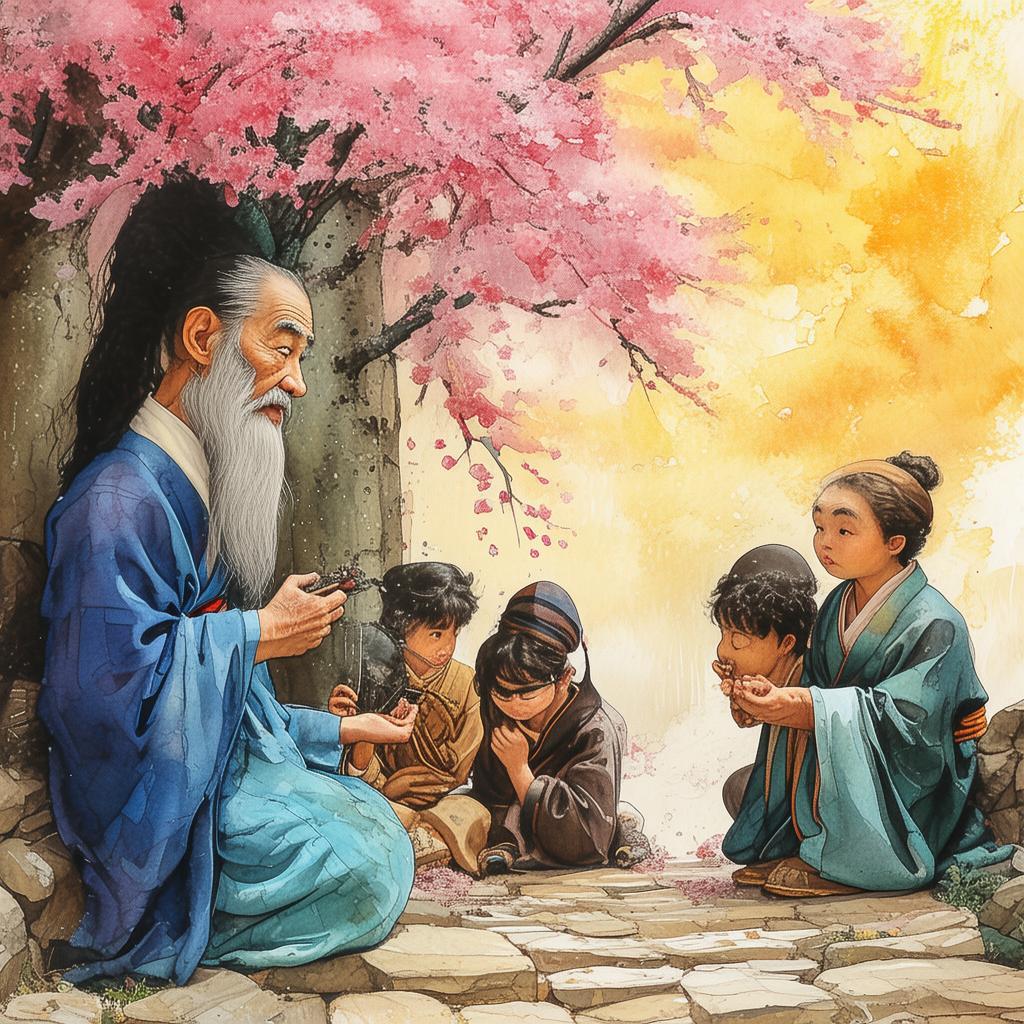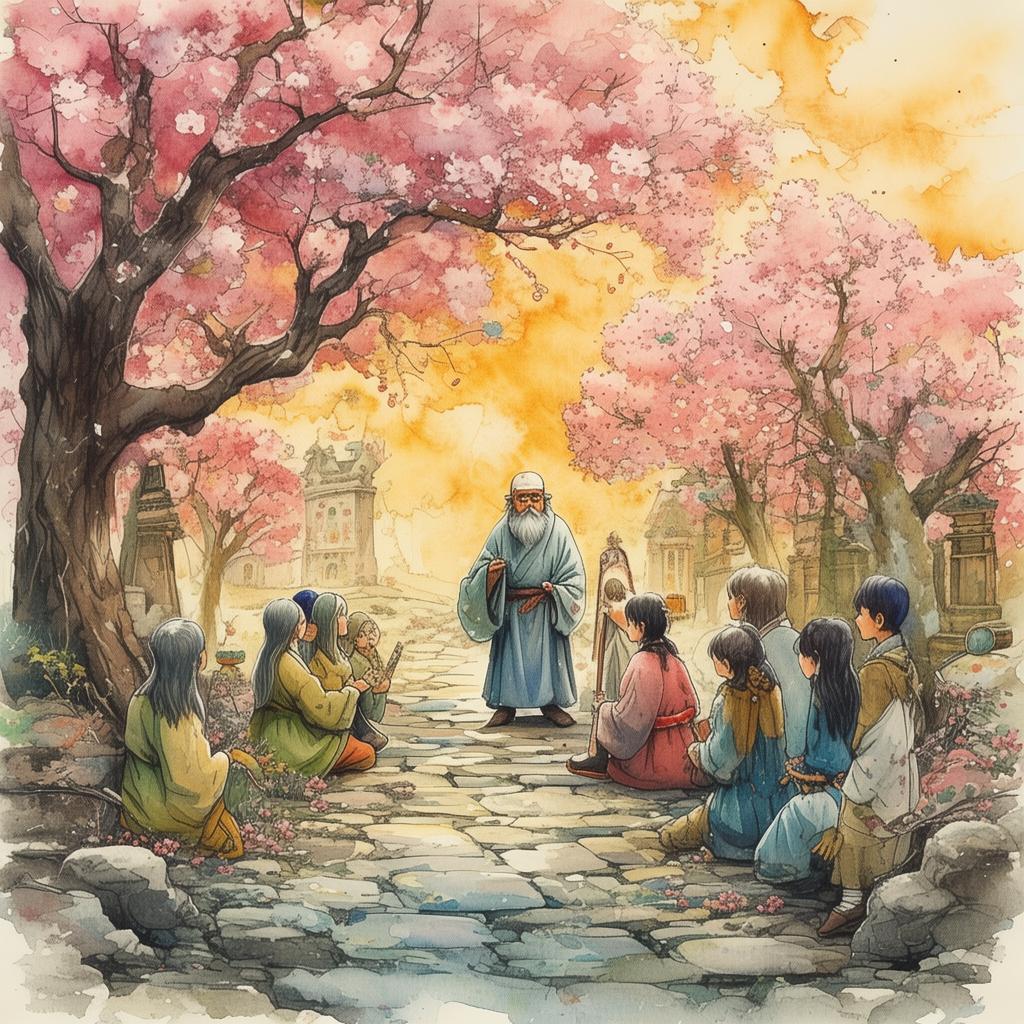Embracing the Zen: The Quest for Inner Peace in the Age of Revolution
In the heart of a tumultuous era, a young monk named Chan was born into a world of chaos and conflict. The land was torn apart by revolution, and the people were weary of the endless strife. Chan, however, was not one to be swayed by the turmoil. He sought solace in the teachings of Zen, a path that promised enlightenment and inner peace.
Chan's journey began in a small, humble temple nestled in the mountains. The temple was a sanctuary of tranquility, a place where the sounds of the outside world were muted by the whispering winds and the gentle rustling of leaves. It was here that Chan first learned the basics of Zen, the practice of mindfulness and the cultivation of inner peace.
As the years passed, Chan's understanding of Zen deepened. He began to see the interconnectedness of all things, the way in which the smallest actions could have profound effects on the world around him. He realized that true peace could only be achieved through the transformation of oneself, not through the defeat of others.
One day, a visiting warrior named Li arrived at the temple. Li was a man of great strength and skill, but his heart was heavy with the burden of war. He had seen too much death and destruction, and he was seeking a way to end the cycle of violence.
Chan, recognizing the sincerity in Li's eyes, offered him a place within the temple. Li, initially hesitant, agreed to stay, hoping to find a way to bring peace to the land.
The days that followed were filled with conflict and tension. Li's aggressive nature clashed with the serene atmosphere of the temple. Chan, however, remained calm and patient, guiding Li through the practice of Zen. He taught him to focus on the present moment, to observe his thoughts and emotions without judgment, and to find peace within himself.
As Li began to practice, he noticed a change within himself. The anger and resentment that had once consumed him began to fade. He started to see the world in a new light, understanding that the true enemy was not another person, but his own inner turmoil.
One evening, as the sun dipped below the horizon, Chan and Li sat together in meditation. The monk spoke of the Zen concept of "Embrace the Zen," a metaphor for accepting the world as it is and finding peace within that acceptance. Li listened intently, his heart heavy with the weight of his past actions.
Chan continued, "In the chaos of revolution, we must find our center. Only then can we truly bring peace to the world. Embrace the Zen, and you will find the strength to change yourself, and in turn, change the world."
Li nodded, understanding the profound wisdom in Chan's words. He realized that the revolution was not about defeating enemies, but about transforming oneself. With a newfound sense of purpose, Li left the temple, determined to use his strength and skills to promote peace and harmony.
Back in the temple, Chan continued his practice, his heart filled with gratitude for the journey he had shared with Li. He knew that the revolution would continue, but he also knew that the seeds of peace had been planted.
Months passed, and the land began to change. Li, with his newfound wisdom, worked tirelessly to bring peace to the warring factions. His actions were met with skepticism at first, but soon, others began to follow his example. The revolution was not over, but it had taken a new direction.
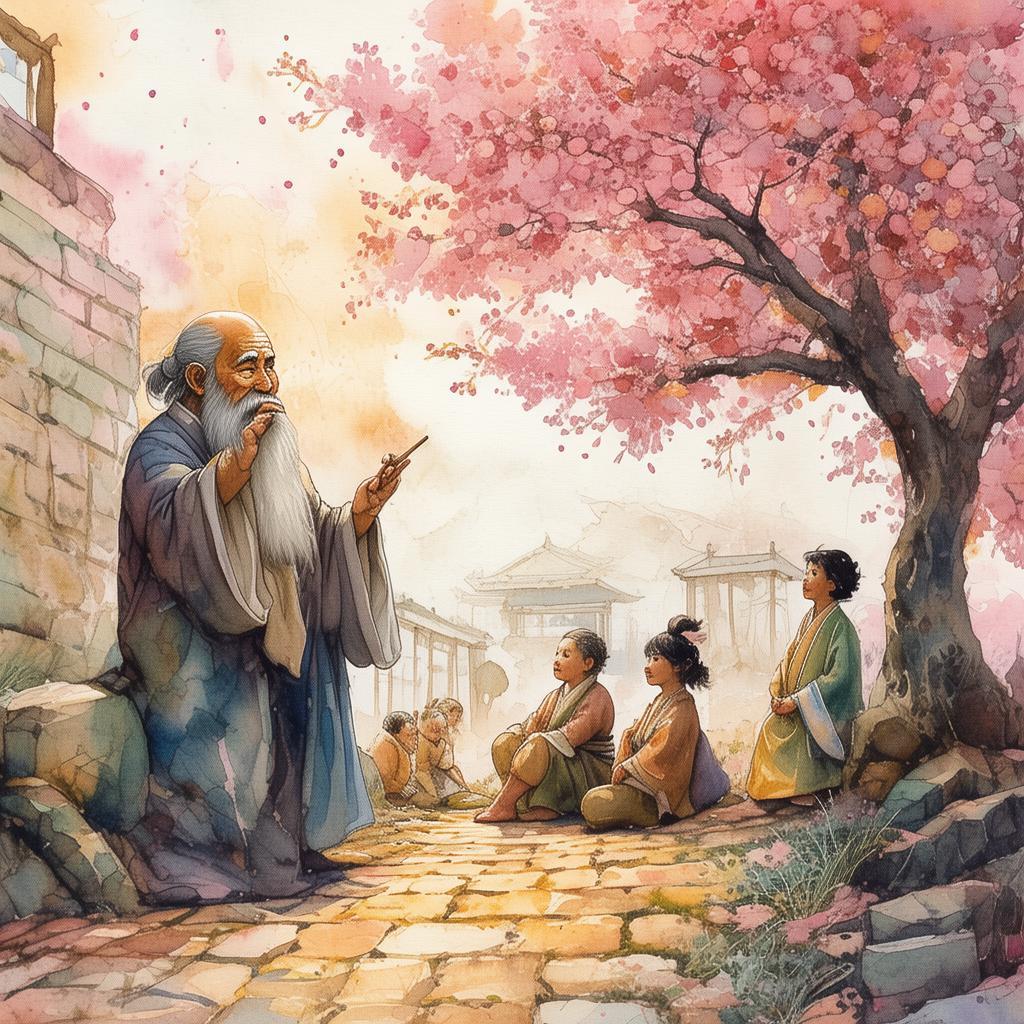
Chan, from his serene vantage point in the temple, watched as the world around him transformed. He saw the power of inner peace, the way it could transcend conflict and bring about a new era of harmony.
In the end, Chan's journey was not just about his own enlightenment, but about the transformation of the world. Through the practice of Zen and the embrace of inner peace, he had shown that even in the midst of chaos, there was hope for a new era of tranquility.
And so, the story of Chan and Li became a legend, a tale of how one could find peace in the midst of revolution. It was a story that would inspire generations, a reminder that true power lies not in the strength of arms, but in the strength of the spirit.
✨ Original Statement ✨
All articles published on this website (including but not limited to text, images, videos, and other content) are original or authorized for reposting and are protected by relevant laws. Without the explicit written permission of this website, no individual or organization may copy, modify, repost, or use the content for commercial purposes.
If you need to quote or cooperate, please contact this site for authorization. We reserve the right to pursue legal responsibility for any unauthorized use.
Hereby declared.
